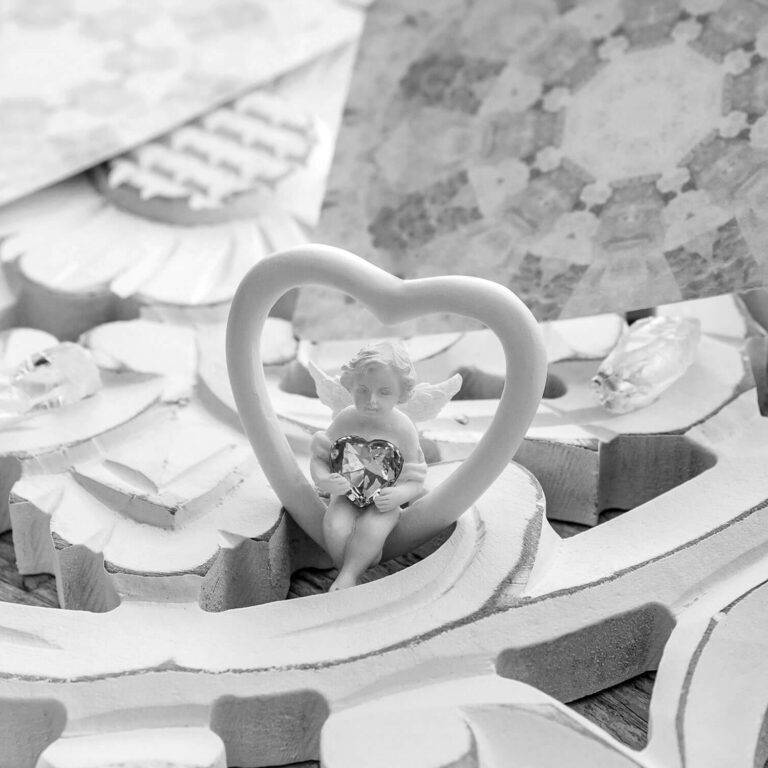If you are in the healing profession, it is highly likely you will come across clients who have the wounds of the Scapegoat Child. It is also very likely that you were the scapegoat child in your family too. As you are reading this blog about recognising Scapegoat Child wounds in your clients, it may bring some self awareness for you too.
Scapegoating is a form of psychological abuse often found in toxic, abusive or narcissistic family homes. This is such a deep wound to the heart because it is created by the ones who are meant to love us most. Being the Scapegoat in a family can have huge detrimental effects on someone’s emotional and psychological wellbeing, causing harm and wounding which are carried into adulthood, impacting achievements, relationships and sense of self long term or for a lifetime if not healed.
By understanding and identifying this wound, we are able to better support clients with it and even bring some awareness to them which is very freeing and healing and helps release them from the psychological and energetic ‘role’ they are playing. Here are some common historical signs to look out for that indicate your client is impacted by these wounds:
Blamed for everything
Made to feel like everything was their fault, even things they had no control over
Made to feel unworthy, inadequate and that they could do no right.
Feels perpetual shame
Severe punishments for minor mistakes or normal child behaviour
Punished for things that other siblings were not punished for
Being compared to another toxic person (e.g. their mother comparing them to their abusive or absent father)
In the present, they may no longer be in contact with their family either because they were outcast for no good reason or an overreaction from their toxic family. Or they may no longer be in contact with them because they realised it was not a healthy dynamic and walked away to protect themselves (there may still be a lot of guilt and pain around this).
Alternatively, If they are still in contact with their family, it is described as very toxic contact where they are still playing the scapegoat role and experiencing similar things as to what they experienced in childhood. If they do not have knowledge of the scapegoat dynamic, they will make excuses for their toxic family, think this is normal in families and minimise the way they are treated because they have learned they are wrong and somehow deserve to be treated this way.
How does being the Scapegoat Child Impact a Person?
The wounds of being the Scapegoat child run deep and can have a significant, long lasting impact on someone’s life and their potential to achieve the success they desire.
Through my work with thousands of women entrepreneurs and my previous career in Social Services and homelessness services, I usually see 2 dynamics appear when Scapegoating is present:
- They fall into the role placed on them (subconsciously they have decided they may as well be what they are accused of being as they are made to feel bad anyway!) and struggle in life, this can show up as drug use, employment issues, mental health issues, getting in trouble with police etc.
2. They become high achievers to prove their family wrong, but their achievements are always criticised, ridiculed or ignored so they still never feel good enough, no matter what they achieve.
Self sabotage
If someone was a Scapegoat Child, deep down they don’t feel worthy or safe enough to allow themselves to truly be successful. They protect themselves from criticism and so behave in a way which may hold them back from achieving their full potential. E.g. they will deliberately (consciously or unconsciously) create a drama or abrupt end to something that is going well for them, whether that is a relationship, career opportunity or anything else.
Self loathing
Imagine only ever been told that you are no good, bad, useless, a ‘problem’ then understandably you will start to believe it! People with wounds of the Scapegoat Child are overly critical of themselves and their work and just do not feel good enough. The voice of their family repeats in their heads. They may suffer from low self-esteem and have fears about getting close to people, or may even act as though they are superior to others in order to mask their real feelings.They have a deep fear “if people get to know who I really am, they won’t like me” due to the false perception they are bad, wrong or evil that has been created by being treated as the Scapegoat.
Self destructive behaviours
These might be conscious or subconscious, and might be used as a way to numb the pain of being the Scapegoat child or as a punishment on themselves due to having these negative beliefs about who they really are. They could include self-pity, drug and alcohol abuse, unhealthy eating, extreme spending or isolating yourself from others. Any form of addiction can be a symptom of numbing the pain of this self loathing or as as self-punishment due to self loathing.
Scared of doing something wrong or making mistakes
When we are little we are trying to develop a sense of what is right and wrong in the world. When you are constantly told off even if you did something right or if you were finding your way in the world trying things for the first time this could cause you to become reluctant to try anything new or going out of your comfort zone out of fear of doing something wrong. A deep fear of failure or making mistakes is often associated with being treated as the Scapegoat. This can lead to a ‘freeze’ trauma response where someone can’t seem to move forward with important projects. This perpetuates the cycle of believing there is something wrong with them.
Self trust difficulties
The fear of making mistakes leads you to not trust yourself to make the right decisions for yourself in your personal and professional life. This can hinder your success and stop you from creating the life you really want to lead.
Struggles in relationships
When unhealed, the pattern often continues in the choice or romantic relationships and friendships in that person’s life. The other tends to reflect the toxic person from the origin family home, further compounding self worth struggles, self sabotage and self destructive behaviours.
Healing the Scapegoat Child
By helping our clients heal their heart’s wounding, helping them understand that what they have experienced is not their fault, they can begin to see that they did nothing wrong. Usually a scapegoat child is chosen because they do not fit in with the toxic and unhealthy norms of the family. Just the awareness itself is enough to create a shift, but as these wounds run deep, therapeutic intervention is often needed.
Thanks to HeartHealing® I have been able to heal from my own Scapegoat Child wounds to finally have self worth, lasting love, and incredible success in life as well as help many of my clients feel free from this deeply hurtful wounding. Healing is possible.
If you are interested in using HeartHealing® to help your own clients who were the Scapegoat Child, check out our HeartHealing Mastery Certification which will give you all the tools you need to create life changing deep healing for yourself and your clients.
If you want to learn more about how to heal your own wounds as a Scapegoat Child, check out our one to one Personal HeartHealing® Package where you can experience healing on a deeper level and benefit from incredible results.
Natasha Bray

ABOUT THE AUTHOR
Natasha Bray
Founder of the School of Healing Mastery & Master HeartHealer® Natasha is founder of the School of Healing Mastery, a Multi-Award Winning Success Mastery Coach & Pioneer in the business success and transformational industry. After overcoming her own chronic childhood trauma and abuse, she has committed to helping others heal themselves and others through her revolutionary and innovative therapeutic method, HeartHealing®. With a professional background in specialist social work and over 15 years experience in transformational work, working with thousands of entrepreneurs across 52 countries worldwide her work has helped women break through to higher levels of love, inner peace, money and success in as little as one session. She has been featured in local and national papers and she is recognised as one of the top 35 under 35 entrepreneurs in her country.



